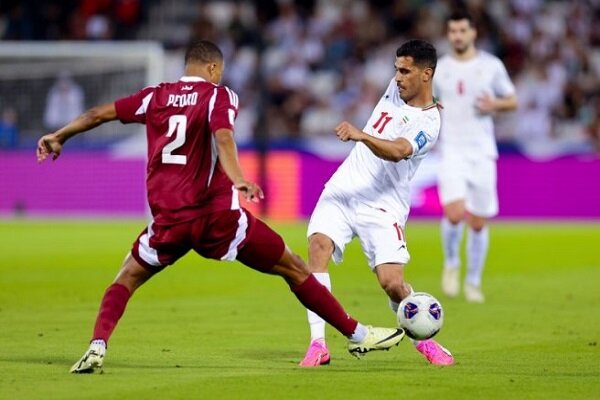Iran football need to learn lesson from Qatar’s defeat

TEHRAN - Team Melli's recent defeat to Qatar in the AFC Asian Qualifiers – Road to 26 wasn't just another loss; it was a tactical revelation, offering a glimpse into a national team in transition. While qualification for the 2026 FIFA World Cup is secured, Thursday's encounter in Doha unveiled a markedly different Iranian side, one grappling with absences and experimenting with new blood on the international stage.
The absence of key European-based players like Sardar Azmoun, Alireza Jahanbakhsh, and Ali Gholizadeh due to injury significantly altered Iran's dynamic.
This forced Amir Ghalenoei to select a starting eleven that saw only Mehdi Taremi and Saeid Ezatolahi representing the usual foreign contingent.
Such a domestic-heavy lineup is a rarity.
This "least international" version of Team Melli underscores a deliberate, or perhaps forced, shift in personnel.
The match further highlighted an intriguing domestic influence. Tractor, the reigning Iranian champions, remarkably supplied four players to the starting lineup – Alireza Beiranvand, Shoja Khalilzadeh, Aref Aghasi, and Amirhossein Hosseinzadeh. This dominance by a single club in the national team's starting eleven is a phenomenon not seen since Persepolis's golden era nine years ago, when they also contributed four players to a World Cup qualifier against South Korea.
Beyond the players changes, the game was marred by a familiar and concerning pattern: a red card. Milad Mohammadi's swift dismissal in the 35th minute, receiving two yellow cards in quick succession, proved decisive. This incident marks the third time Iran has been reduced to ten men against Qatar in official matches, with all three instances resulting in defeat. This worrying trend extends beyond Qatar; Iran have now seen three red cards in their last nine qualifying matches and a striking six in last 28 games overall – a number equivalent to the total red cards received in the 236 matches preceding this recent run.
This alarming frequency of dismissals raises questions about tactical discipline and composure under pressure, especially in a competitive environment.
While the sting of defeat is undeniable, this match serves as a crucial learning experience. With World Cup qualification secured, the remaining qualifier against Korea DPR offer a valuable opportunity for Ghalenoei to assess new talents and forge a cohesive unit. However, the recurring issue of disciplinary lapses and the vulnerability to numerical disadvantage are pressing concerns that demand immediate attention if Team Melli are to truly compete at the highest level in 2026.
